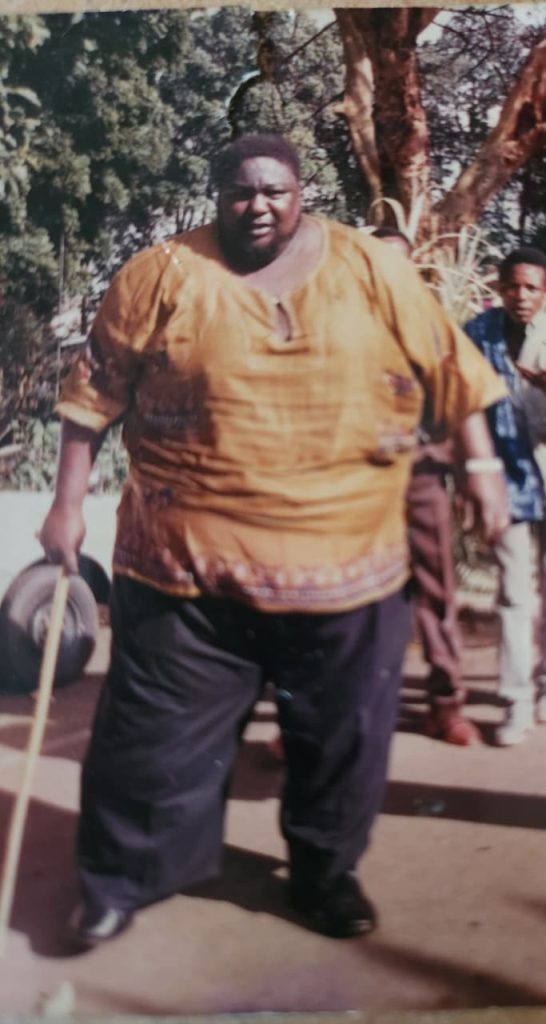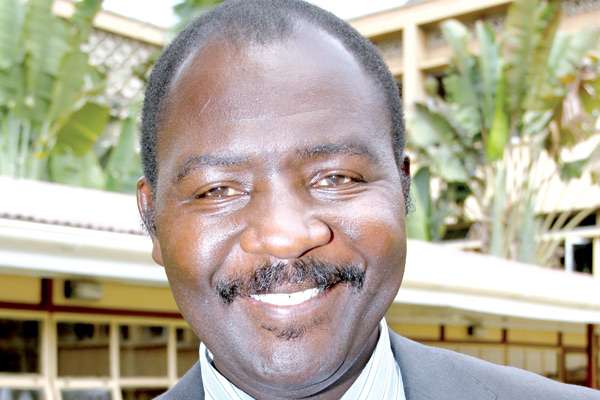By The Weekly Vision Features Editor
Few figures in Kenya’s cultural history have inspired as much fascination as the late Prof. Mohammed Bakari Naaman, fondly remembered as Prof. M.B. Naaman. Renowned for his commanding presence and larger-than-life persona, he straddled two worlds with ease: celebrated by many as a pop music star, yet revered by others as a gifted herbalist whose knowledge and influence extended far beyond the stage.
To unlock the full article:
Choose one of the options below:
- Ksh 10 – This article only
- Ksh 300 – Monthly subscription
- Ksh 2340 – Yearly subscription (10% off)
Standing nearly two metres tall and weighing close to 450 kilogrammes, Prof. Naaman was a sight to behold. Such extraordinary physical features inspired myths: legend has it he could consume an entire goat for lunch and two crates of eggs for breakfast, fuelling his larger-than-life reputation.

Born in 1946, Prof. Naaman’s lineage remained the subject of speculation throughout his life. While some claimed he was Mijikenda and others insisted he was Kamba, in truth, he was of mixed heritage. His father migrated from Oman and settled in Mombasa, marrying a woman from Bweni in Tanzania’s Tanga region, herself part Kauma (Mijikenda) from Kenya and part Mzigua from Tanzania. This diverse background would later influence both his cultural outlook and professional path.
Yet, regardless of his enigmatic origins, Prof. Naaman made a lasting impact through both music and herbal healing. His most celebrated work, the album Mama wa Kambo, featured iconic tracks such as Mama wa Kambo, Christina, Amina, and Mwana Siti. These songs, performed with his band Nine Stars Orchestra, remain timeless classics on the Kenyan music scene.
Tragically, Mama wa Kambo was his final composition. Prof. Naaman passed away in 1992 at Nairobi Hospital from heart complications, a condition family members attributed to his extreme weight.
Yet his music endures. To this day, his songs receive regular airplay on Kenyan radio stations and are streamed widely on digital platforms.
On Boomplay alone, Mama wa Kambo attracts over 100,000 monthly listeners, while his catalogue is also available on Spotify, Amazon Music, and SoundCloud. Despite this enduring popularity, the family maintains they have never received a single shilling in royalties. Repeated attempts to secure what they believe is rightfully theirs from the Music Copyright Society of Kenya (MCSK) have thus far yielded no results. A devout Muslim and dedicated family man, Prof. Naaman had four wives and 17 children.
Myths about his family life abound, including one claim that he ran a school exclusively for his children. His youngest son, Rashid Naaman, dismissed the story in an exclusive interview with The Weekly Vision:
“I studied up to Class 8. If my father had been running a school, as some claim, I would have been its first beneficiary,” Rashid said.
Prof. Naaman’s first wife, Johra, a Ugandan, bore him seven children. His second wife, Halima, had two. The third, a Kikuyu, had none, while the fourth, Saida Kimbe from Meru, bore him eight children. Although he had limited formal education, Prof. Naaman possessed profound knowledge and wisdom. He immersed himself in Islamic studies, which shaped his spiritual outlook and enriched his understanding of cultural traditions.
His paternal Omani family had a rich history in herbal medicine, a craft he inherited and perfected. His first wife’s Tanzanian family also practised herbal healing, creating a synergy that strengthened his expertise.
Some oral accounts even claim that he once cured a patient, known only as Abdul, of HIV. While undocumented, such stories added to the aura of mystery surrounding his practice. Prof. Naaman ran his main herbal clinic in Kitui, with additional operations in Nairobi’s Milimani area near Sagret Hotel. Among his most prominent students was Dr. Makini (born Wills Wanjala), father of Kenyan pop star CMB Prezzo. According to relatives, several of his herbal formulations were approved by KEMRI, underscoring his reputation as a knowledgeable and effective healer.
Today, three of his sons, Rashid Naaman, Naaman Mohamed Naaman, and Abubakar Mohamed Naaman, continue the family tradition as herbalists. Rashid, in particular, also inherited his father’s musical flair. His singles Unaniroga, Jera, and Real Life enjoyed popularity, and he collaborated with Tanzanian artist T.I.D. while producing music for performers such as Mauzo and Chikuzee.
“My dad used to carry me along to concerts,” Rashid recalls. Rashid also mirrors his father physically, with striking facial similarities and a similarly heavy build, weighing 150 kilogrammes. Recently, however, he decided to leave music behind to concentrate fully on herbal medicine. “I donated my recording studio (Naaman Music), and all my equipment to Ustadha Ali Mosque in Mombasa, to be used for Islamic religious activities,” he said.
Now a respected herbalist and fortune-teller, Rashid, born on 28 June 1987, is married to three wives and is the father of six children. Prof. M.B. Naaman’s influence lives on through his music, his children, and the countless lives he touched through herbal healing. He remains a towering figure, literally and metaphorically, in Kenya’s cultural and spiritual history.
[/full]




